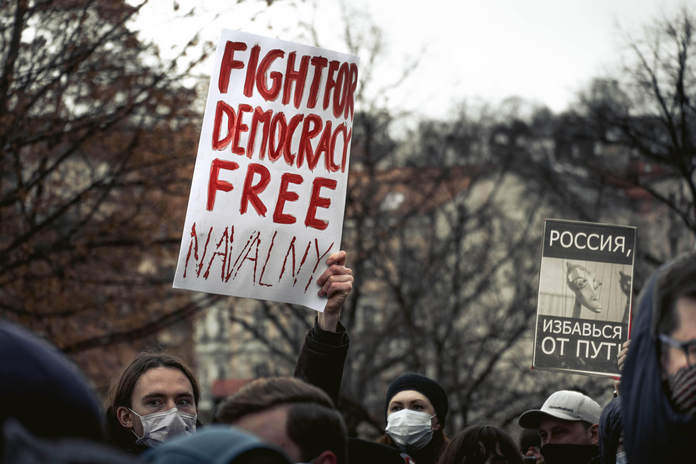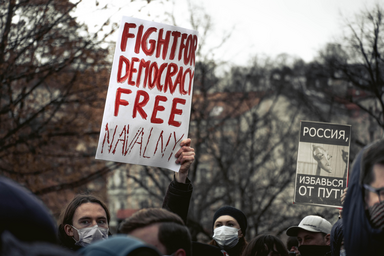Around Russia, tens of thousands of protesters have taken to the streets to voice their support for the opposition leader, Aleksei Navalny. While this is not the only instance of people protesting the government, it is so much more different than anyone could have imagined as protesters face harsh police brutality and growing dissatisfaction with President Vladimir Putin.
The events have attracted so much international attention that the U.S. State Department released a statement denouncing the brutality and tactics used against protesters who are utilizing their freedom of expression. Protesting in Russia is dangerous; so far the Humans Rights Watch has reported that more than 3,200 people have been detained, and bystanders have been shoved around or punched by police. Aleksei Navalny has become a sort of figure for these protesters and his return to Russia after being poisoned and transferred to a hospital in Germany in 2020.
The protests over the last two weekends have shown that Mr. Putin may have a challenge in silencing the voices of many who want him out of office. One of the reasons that Mr. Navalny is popular among protesters is because of his stance on anti-corruption and his opposition to President Putin.
So what makes these protests so powerful and important to the future of the Russian government? It’s no secret that after the fall of communism in the country, the government turned authoritarian and gave the illusion of democracy with elections where you can only vote for one party or very limited freedoms.
Mr. Navalny has been able to guide voters away from the United Russia party and place their support behind opposition parties. This is so important to changing the makeup of the Russian government, as the United Russia party is only polling at about 30 percent with the elections for parliament coming up in September.
Younger generations have shown the most upset and anger towards the Kremlin as they have only ever known life under the rule of Vladimir Putin. The protests may also be faced with more police brutality and pushback after a Russian court on Tuesday sentenced Aleksei Navalny to serve prison time.

It may take a long time for Russia to become a legitimate democracy, and larger protests and more people like Aleksei Navalny are needed to lead younger generations away from United Russia. While there has been so much momentum with the cause, the protesters only make up a fraction of the country’s population, and the president still holds support from the Russian government.
Photo Credit: Her Campus Media Library



